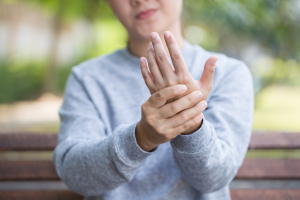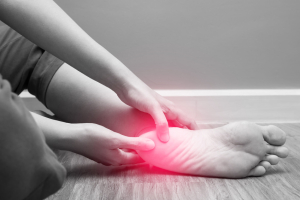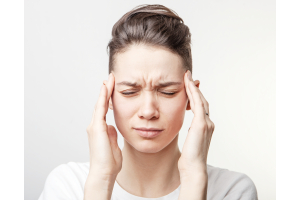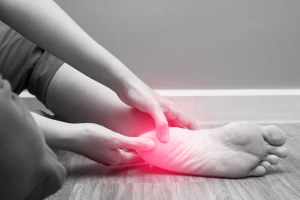
Stress: Health Risks and Tips for Relief

Stress is something that virtually every person can say they’ve experienced. It’s likely that Americans are more stressed than ever before, given the current health crisis and our political climate. And while not all stress is detrimental, the long-term effects of excessive stress can be significant and detrimental to one’s health.
Although stress is often normalized as being an inescapable part of life, we know that too much of it can be incredibly harmful. It’s important that you’re able to recognize the signs of prolonged stress and take steps to prevent this from happening in your own life. In today’s post, we’re sharing a few of the health risks associated with stress, as well as some natural methods of stress relief you might want to try at home.
The Health Effects of Excessive Stress
There are a number of health concerns that come along with high levels of stress, particularly in the long term. Some of these risks may be more immediately noticeable than others, but any of them could convince you to reduce stress as much as possible. Heart problems and high blood pressure are common outcomes of stress, as are headaches and stomachaches. Many people who experience excessive stress have difficulty sleeping or report mental health issues like depression and anxiety.
One of the more obvious signs of stress, both in the long term and in the short term, is muscle tension. The body has over 650 muscles — and the stress we feel mentally or emotionally can often manifest in physical tension throughout our bodies. Tensing your muscles is thought to be a way that you instinctively guard yourself against pain or injury. But ironically, you can often end up causing yourself more pain by reacting to stress in this way. Migraine headaches are often brought on by hormonal fluctuations and by muscle tension, which often means that stress reduction is one of the best ways to keep pain at bay. And if you’ve had to use back pain relief products in the past to eliminate your discomfort in this area, it’s possible that stress could be to blame.
Natural Ways to Relieve Stress and Its Effects
Tackling the root cause of stress is an important step. But there are certain types of stress that will always be present, so it’s also essential to create a regimen that can help you relieve the negative effects of stress. A combination of physical activity, topical pain relief, and mindfulness practice can do wonders.
- Exercise: Those who require the use of topical pain relief products on a regular basis might assume that physical activity might worsen their condition. But in many cases, regular exercise can keep the muscles strong while allowing you to eliminate feelings of stress. Whether you walk around the block or work up a sweat in the living room, you’ll release those feel-good hormones. You’ll naturally be able to relieve stress — and you might not need to use your Arnica Pain Relief Gel as much.
- Massage: You don’t need to go to the spa to get a massage. Apply Pain & Fatigue Relief Cream to the muscles in your hands, jaw, neck, shoulders, hips, calves, and feet to help your body relax and release tension. If you use topical pain relief products regularly, you may be able to catch discomfort earlier on.
- Meditation: Whether you practice breathing exercises or try out mindfulness and gratitude practice, meditation can be a wonderful way to naturally relieve your stress and keep you centered. Deep breathing can put you in touch with what your body needs and help your tension melt away. By devoting just a few minutes each day to meditation, you can make a big difference.
As you can see, stress can take a massive toll on your physical and mental well-being. But by applying topical pain relief products, exercising regularly, practicing meditation, and tackling the cause of stress at the source, you can prevent many negative health consequences. For more information on our topical pain relief products, please contact MagniLife today.






